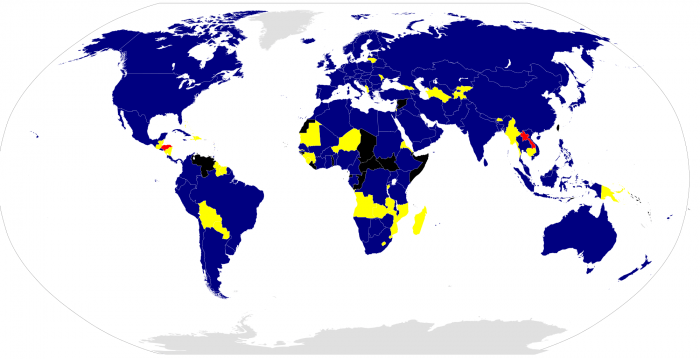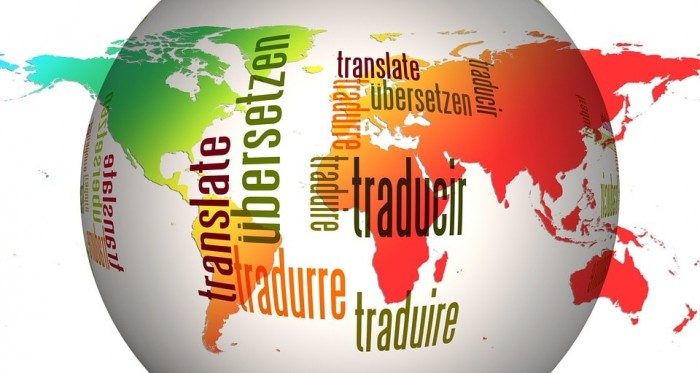New efforts are being made to combat the global issue of corruption and bribery. New changes are certain to come following the introduction of ISO 37001 – but how does foreign language translation fit in to all of this?
Foreign Language Standard
The anti-corruption compliance community awaited with bated breath the publication of the Anti-Bribery Standard ISO 37001, officially published October 14th. This standard differs from its predecessors by its narrow focus on bribery; compared to the more general compliance guidelines of ISO 19600. Another big change is that ISO 37001 is drafted as a set of requirements, which makes it certifiable by third parties. The reverse side is that it does not leave room for recommendations: either an organization meets the requirements or it does not.
The main requirements of the ISO 37001 that must be implemented if an organization wants to prevent bribery are:
- Assessment of bribery risks, including due diligence.
- Implementation of an anti-bribery policy and program.
- Identification of a compliance function to monitor the program
- Communication of the anti-corruption policy to associated persons
- Training for personnel and associated persons
- Verification that employees comply with the anti-bribery policy.
- Monitoring of benefits given by the organization to ensure that they do not have a corrupt purpose.
- Implementation of controls to prevent bribery risk
- Implementation of whistleblowing procedures
- Process to detect bribery and to deal with any actual or alleged bribery.
With the need to ensure that international employees and subsidiaries are in line with ISO 37001, companies will need to adapt their compliance strategies to their global workforce. This will not only help protect them in the event of FCPA or other corruption investigations, but it will also “provide reassurance among investors and other stakeholders that an organization has an effective system in place to manage the risk of bribery” (iso.org).
Foreign Language | Regulatory Compliance Standards and the Need for Translation
Foreign language translation services for FCPA and compliance play a huge role in guaranteeing this “effective system”. Whether as proactive due diligence, or in response to an incoming DOJ or SEC compliance investigation. In the former instance, companies need to ensure that their own compliance training materials and policies are translated into the native languages of their employees outside of the United States. This will allow businesses to not only convey proper conduct in all of their markets, but it will also cover some of the new ISO requirements for training programs and proper communication of anti-corruption policies.
Regardless of whether or not a company has implemented the appropriate mechanisms proactively to ensure compliance, partnering with a Language Service Provider (LSP) experienced in legal translation services specific to this area is a must. LSPs utilize legal translators familiar with industry specific terminology in target languages, as well as legal requirements for translation, thus allowing them to more accurately provide language services than an untrained, bilingual speaker.
Foreign Language | The Significance of the New ISO

ISO Member Countries
Despite the worry of some limitations that restrict the efficiency of ISO 37001, the appearance of the new standard is a major victory against the world-wide spread of corruption. It demonstrates that there is a common agreed set of measures needed to prevent and detect bribery. Furthermore, on a global scale, it is univocal recognition that anti-corruption compliance matters for most if not all organizations. The list of participating countries include:
| Australia | Austria | Brazil | Cameroon | Canada | China |
| Colombia | Croatia | The Czech Republic | Denmark | Ecuador | Egypt |
| France | Germany | Guatemala | India | Iraq | Israel |
| Kenya | Lebanon | Malaysia | Mauritius | Mexico | Morocco |
| Nigeria | Norway | Pakistan | Saudi Arabia | Serbia | Singapore |
| Spain | Sweden | Switzerland | Tunisia | The UK | The U.S. |
| Zambia |
Another 22 countries along with those listed above serve as observers of the standard. Aside from translation requirements within companies and law firms, the ISO standard itself will need to be translated in order for all affected participants to understand the implications of bribery in today’s global marketplace.
With the dramatic increase of compliance investigations of late, and the attendant need to process and review a growing number of foreign language documentary evidence, the need for an efficient, and high-quality language service provider has become a must. The publication of the Anti-Bribery Standard confirms that all paths lead toward greater corporate compliance, and that Language Service Providers will be invariable guides along this path, connecting different languages, cultures and countries.
Want more information on how translation can work with your regulatory compliance needs? Check out the following page:
About Language Connections:
Language Connections is one of the top language service companies in the US. Over the last 30 years, we’ve focused on providing the best business translation services, interpreting services, as well as interpreter training and customized language training programs. In addition to top-tier corporate language training, we offer certified corporate interpreters and professional business translation services in 200+ languages. Our network includes linguists with backgrounds in all major industries. They’re ready to meet your needs, whether they’re for technical translation services, legal translation, government translation services, international development translation services, education translation services, life sciences translation, or something else. Reach out to us today for a free quote on our cost-efficient and timely translation services, interpreters, or other linguistic services.
Language Connections Inc.
2001 Beacon Street, Suite 105
Boston, MA 02135
Phone: +1-617-731-3510
Email: service@languageconnections.com



